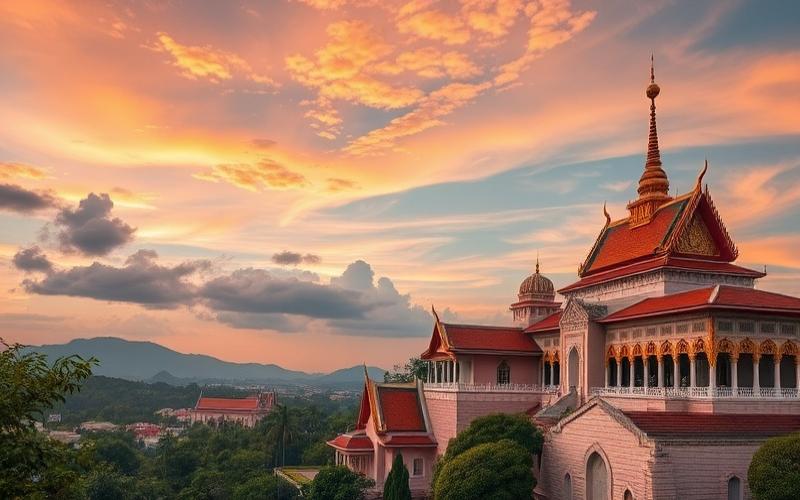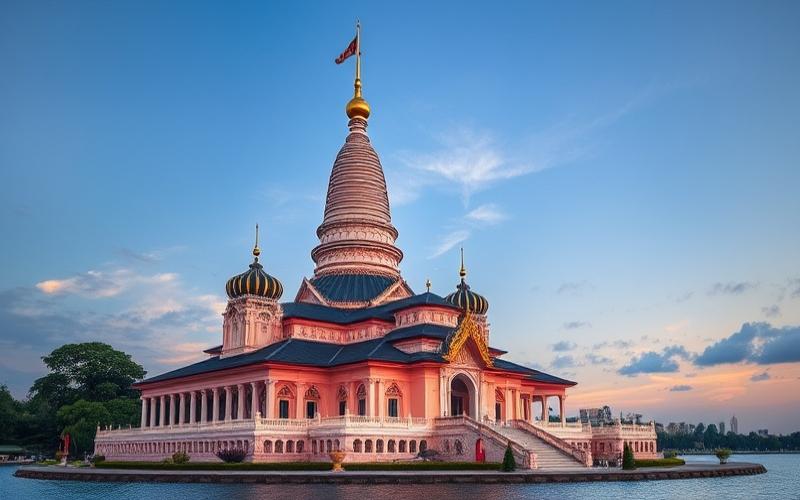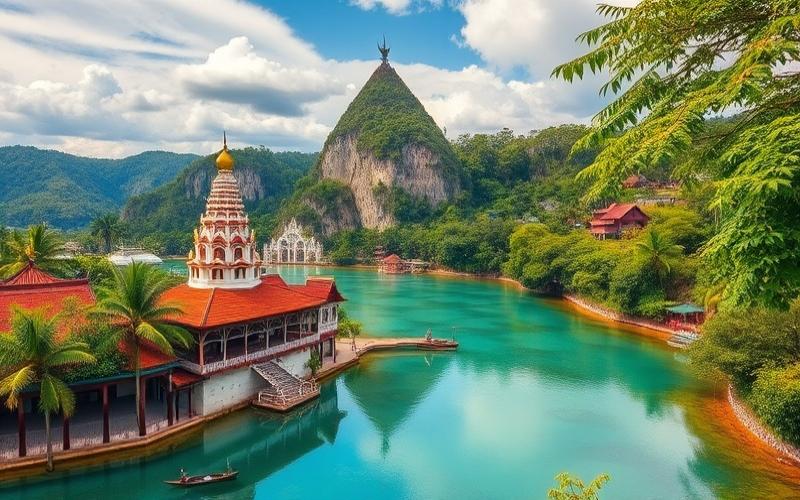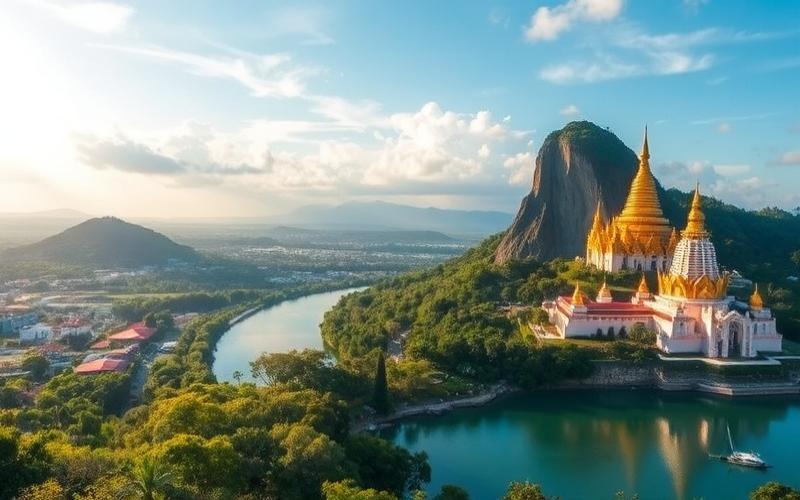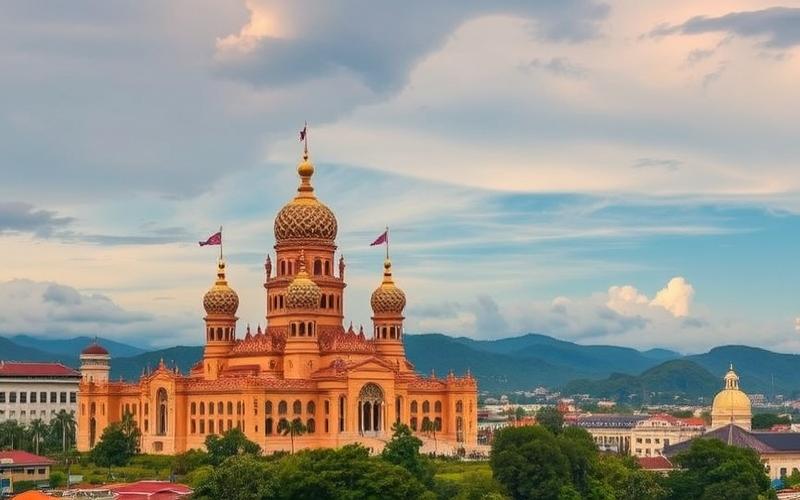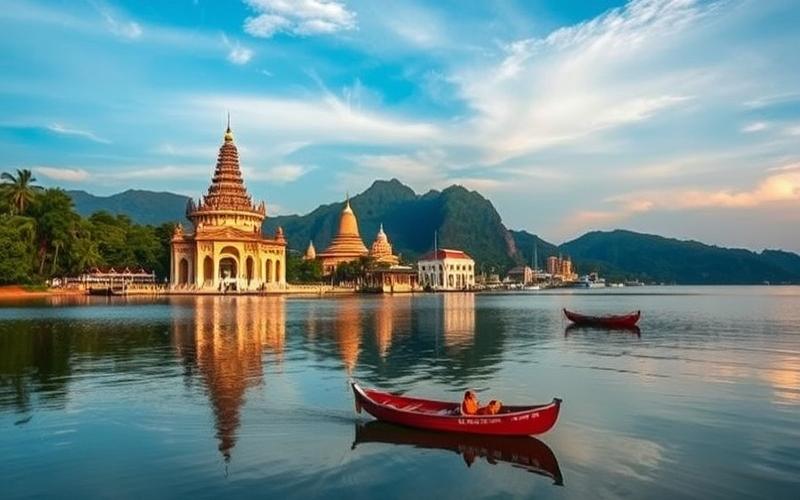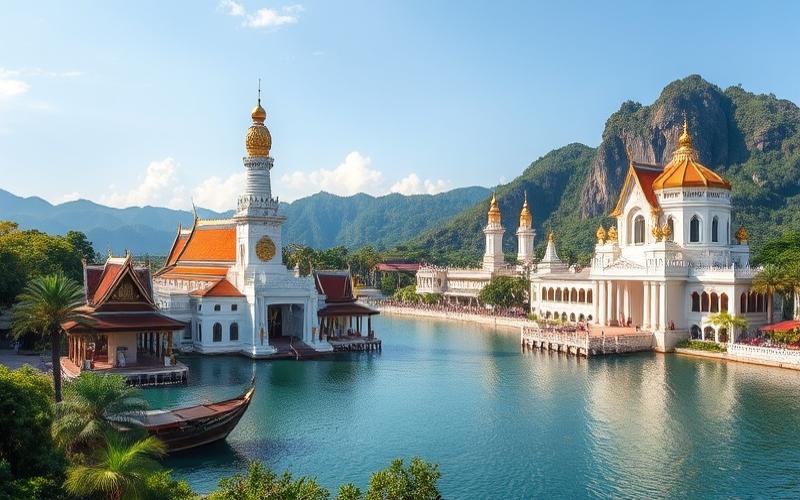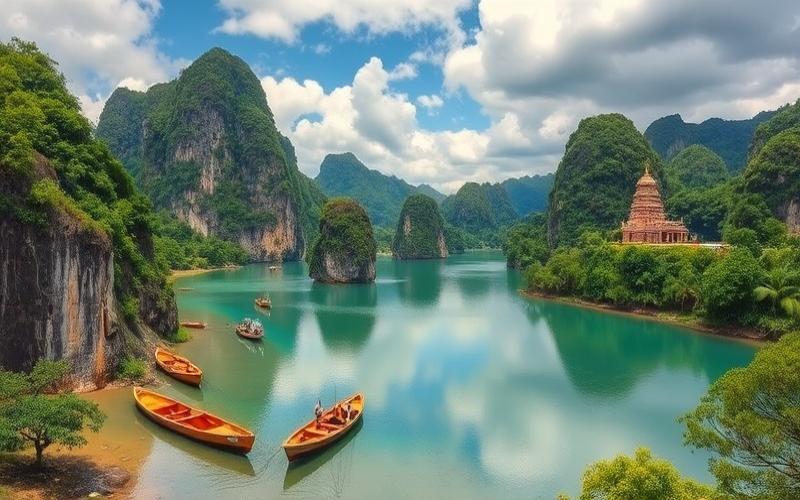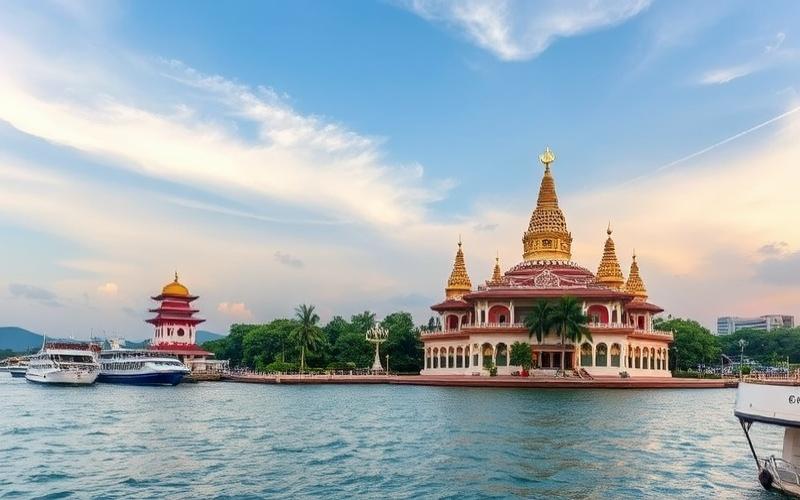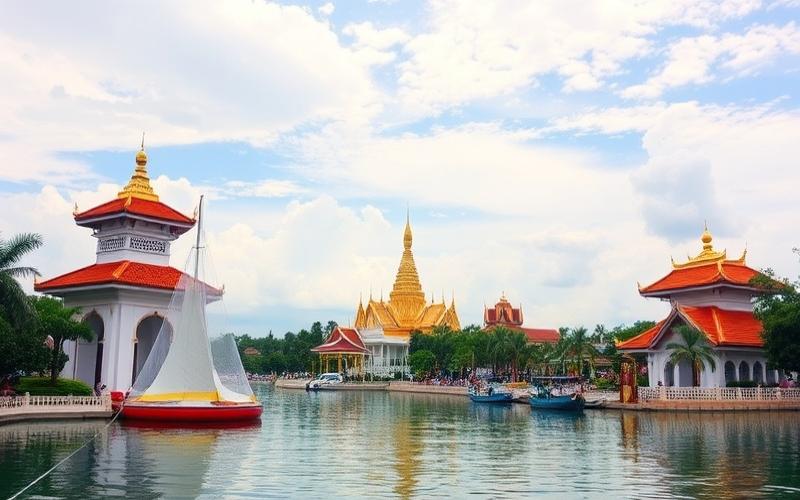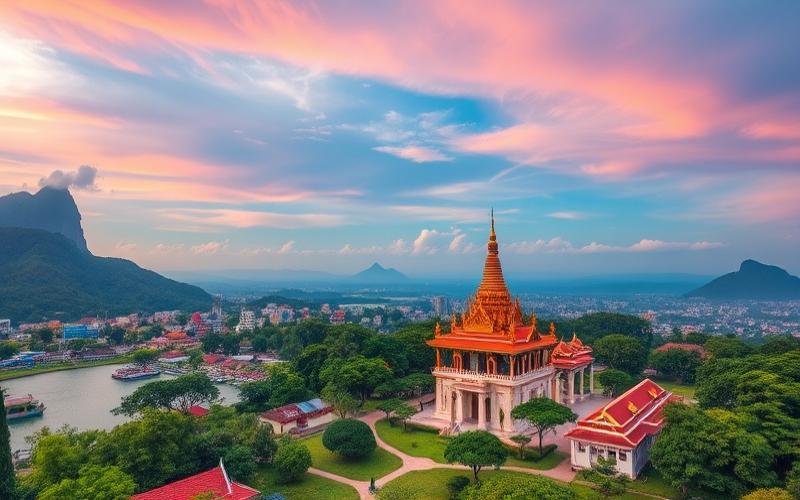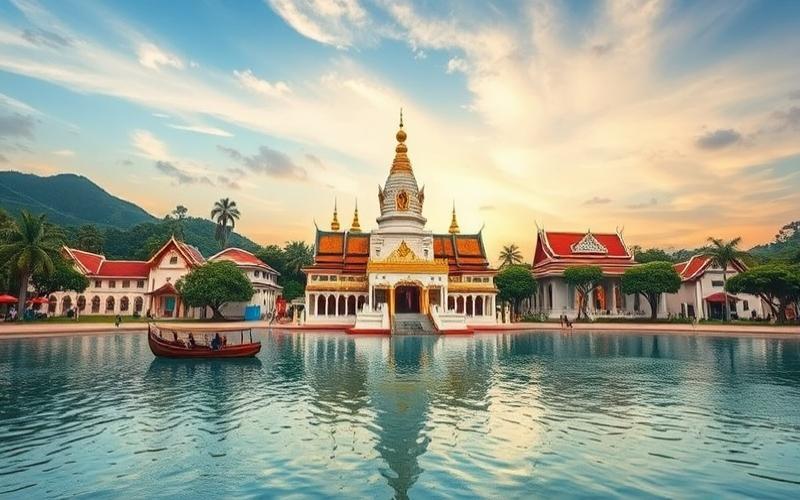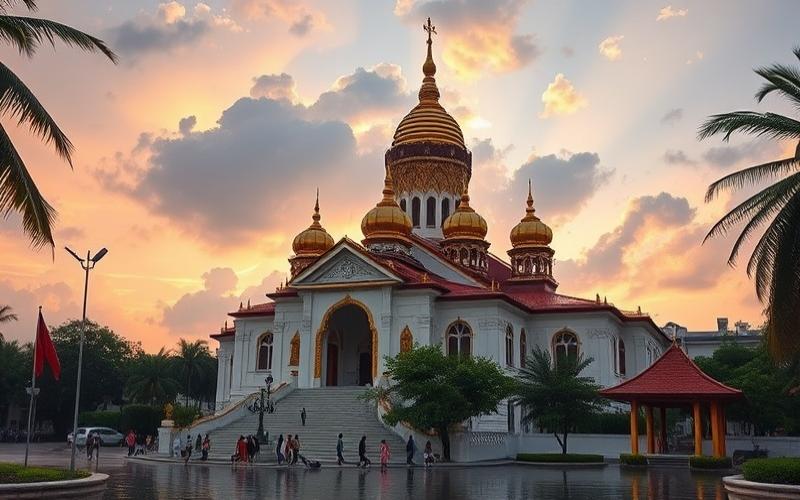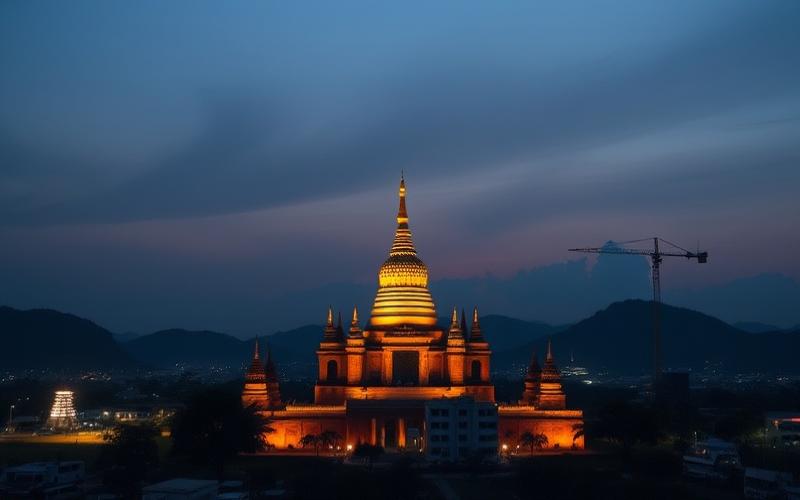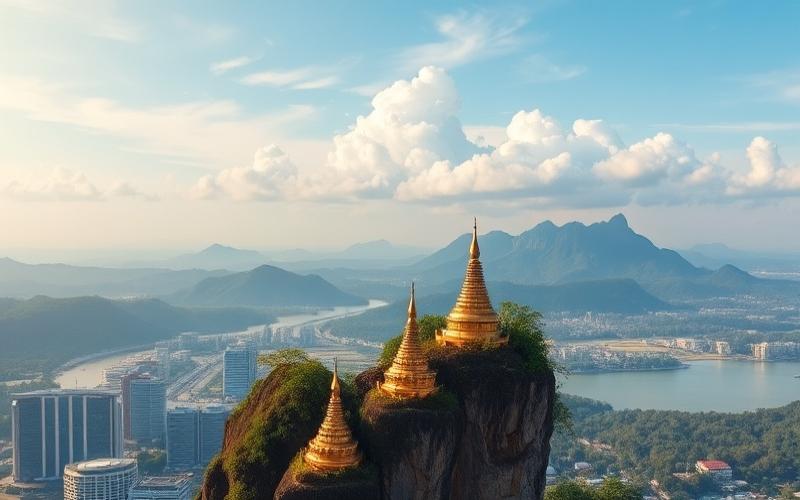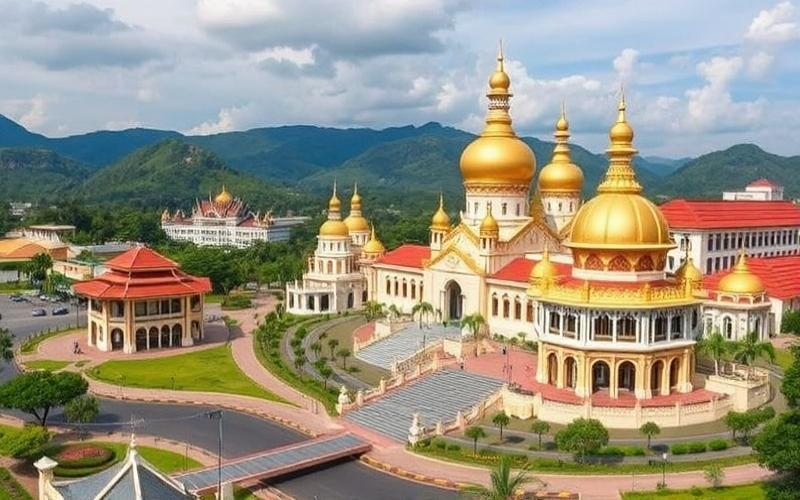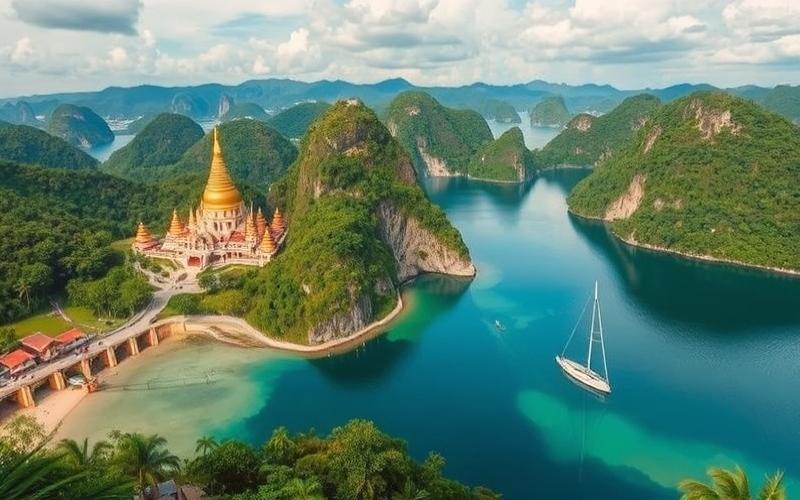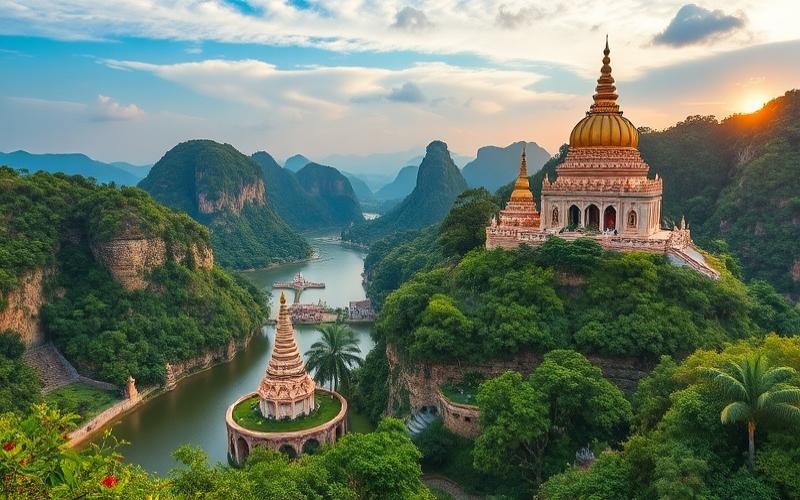
 Published on and written by Cyril Jarnias
Published on and written by Cyril Jarnias
The Sultanate of Brunei, nestled on the northern coast of Borneo Island, is an expanding tourist destination attracting increasing numbers of visitors from around the world. This growth in the tourism sector is significantly impacting the local real estate market, creating new opportunities and challenges for investors and residents. In this article, we will explore in detail how tourism is shaping Brunei’s real estate landscape by examining the most sought-after areas, price trends, and rental investment prospects.
Brunei’s Tourist Gems: Emerging Real Estate Hotspots
Brunei is rich in natural and cultural treasures that attract a growing number of tourists each year. These popular tourist areas have become true magnets for real estate investors, who see considerable development potential in them.
The capital Bandar Seri Begawan, the true beating heart of the country, concentrates a large portion of tourist and real estate activity. The city is home to iconic sites such as the majestic Sultan Omar Ali Saifuddien Mosque, the royal palace Istana Nurul Iman, and the floating village of Kampong Ayer. These attractions have stimulated demand for housing and tourist accommodations in the city center and its immediate surroundings.
Upscale residential neighborhoods like Gadong and Kiulap have seen renewed interest from real estate investors. These areas, located near modern shopping malls and trendy restaurants, are particularly sought after by tourists seeking comfort and amenities.
The Temburong District, nicknamed the “Green Heart of Brunei,” is another booming tourist area. With its lush rainforest and national park, Temburong attracts eco-tourism enthusiasts from around the world. The recent opening of the Temburong Bridge, connecting the district to the main part of the country, has significantly improved the region’s accessibility, thereby boosting interest in local real estate.
The Muara beaches, located about thirty kilometers from the capital, also constitute a major tourist attraction. The growing demand for seaside properties has led to the development of hotel complexes and luxury residences in this coastal area.
Good to know:
Brunei’s most popular tourist areas, such as Bandar Seri Begawan, Temburong, and Muara, have become focal points for real estate investment, offering significant growth potential for the years to come.
Soaring Real Estate Prices: How Tourism is Reshaping the Market
The growing influx of tourists to Brunei has had a notable impact on real estate prices in the most sought-after areas. This upward trend is explained by several factors related to the development of the tourism sector.
In central Bandar Seri Begawan, prices for residential and commercial properties have seen a significant increase in recent years. Luxury apartments and penthouses with views of the Sultan Omar Ali Saifuddien Mosque or the Kampong Ayer floating village are particularly in demand, with prices that can reach up to 3,000 Brunei dollars (approximately 2,000 euros) per square meter.
The Gadong district, known for its modern shopping centers and vibrant nightlife, has also seen real estate prices climb. Apartments and houses in this area can sell for between 400,000 and 800,000 Brunei dollars (approximately 270,000 to 540,000 euros), depending on their size and location.
In Temburong, the opening of the new bridge and the development of eco-tourism have led to an increase in land and property prices. More and more investors and real estate developers are showing interest in this region, anticipating future market growth.
On the Muara coast, the growing demand for seaside properties has driven up prices for villas and apartments with ocean views. Luxury residences in this area can now reach prices ranging from 500,000 to over one million Brunei dollars (approximately 340,000 to 680,000 euros).
It’s important to note that this price increase is not uniform across the country. Less touristy areas further from attraction centers have experienced more moderate increases, offering opportunities for investors seeking more affordable properties.
The Brunei government also plays an important role in regulating the real estate market. Measures have been implemented to prevent excessive speculation and ensure that real estate development remains sustainable and beneficial for the local economy. For example, restrictions on property purchases by foreigners have been maintained in certain areas, which helps stabilize prices for local residents.
Despite these challenges, the general trend remains upward, driven by optimism about the future of tourism in Brunei. Local real estate market experts predict continued price growth in the coming years, particularly in areas most favored by tourists.
Good to know:
The tourism boom in Brunei has led to a significant increase in real estate prices in the most attractive areas, with substantial variations depending on neighborhoods and property types. This trend is expected to continue in the coming years, offering interesting opportunities for savvy investors.
Rental Investment in Brunei: A Golden Opportunity in Tourism’s Wake
The tourism boom in Brunei has opened new perspectives for rental investment, attracting both local and foreign investors. This trend offers interesting opportunities but also requires a thorough understanding of the local market and its specificities.
Short-term rentals have become particularly popular in Brunei’s tourist areas. Apartments and houses located near Bandar Seri Begawan’s main attractions, for example, can generate attractive rental income. Online rental platforms like Airbnb have facilitated this trend, allowing property owners to directly target tourists seeking authentic and comfortable accommodations.
In the Gadong district, demand for furnished medium-term rentals is on the rise. These accommodations attract business travelers and tourists who wish to stay longer in Brunei. Modern apartments with access to local amenities are particularly sought after, offering interesting rental yields for investors.
The growing eco-tourism in Temburong has created new opportunities for investment in unique accommodations. Eco-lodges and guesthouses in the heart of nature are experiencing growing success among tourists seeking authentic and environmentally friendly experiences.
On the Muara coast, seaside villas and apartments offer attractive seasonal rental potential. Tourists are willing to pay a premium for accommodations with stunning ocean views and direct beach access.
However, rental investment in Brunei also comes with its challenges. Local regulations regarding short-term rentals can be complex, and it’s essential to research legal and tax obligations thoroughly before getting started. Additionally, the seasonality of tourism in Brunei can affect occupancy rates and rental income, requiring careful management by property owners.
The long-term rental market also remains an interesting option for investors. The growing presence of expatriates and foreign professionals working in the tourism sector and related services has created stable demand for quality long-term housing.
To maximize their rental investment potential, many owners turn to specialized property management agencies. These professionals can help optimize occupancy rates, manage bookings, and handle property maintenance, allowing investors to make the most of Brunei’s tourism boom.
It’s important to note that the success of a rental investment in Brunei largely depends on the quality of the property and its location. Well-located properties offering modern amenities and attractive design tend to generate the best rental yields.
Good to know:
Rental investment in Brunei offers attractive opportunities, particularly in popular tourist areas. However, a good understanding of the local market, current regulations, and professional management are essential to maximize return potential and minimize risks.
Future Outlook: Tourism as a Catalyst for Brunei’s Real Estate Market
The future of Brunei’s real estate market appears closely linked to the evolution of the tourism sector. The government’s efforts to diversify the economy and promote tourism suggest potential for continued growth in the real estate market in the coming years.
The Brunei Vision 2035 development plan aims to make the country a leading tourist destination in Southeast Asia. This ambition translates into significant investments in tourism infrastructure, transportation, and the preservation of natural and cultural heritage. These initiatives should continue to stimulate real estate demand in key tourist areas.
The development of new hotel projects and tourist complexes should also have a positive impact on the surrounding real estate market. For example, the planned integrated tourist complex in Jerudong, including luxury hotels, shopping centers, and leisure attractions, could create new investment opportunities in the region.
The focus on eco-tourism and sustainable tourism could open new perspectives for environmentally friendly real estate development. Investors and developers who adopt green and sustainable construction practices could benefit from a competitive advantage in the market.
However, it’s important to note that Brunei’s real estate market is not without challenges. The country’s continued reliance on the oil and gas industry could influence long-term economic stability and, by extension, the real estate market. Additionally, restrictions on foreign ownership in certain areas could limit investment potential for international buyers.
Despite these challenges, many experts remain optimistic about the future of Brunei’s real estate market. The combination of a stable economy, a safe political environment, and a growing tourism sector creates a favorable context for long-term real estate investments.
For potential investors, it will be crucial to stay informed about market developments, new regulations, and emerging tourism trends. A cautious and well-informed approach, combined with a long-term vision, could enable them to take advantage of the opportunities offered by Brunei’s evolving real estate market.
Good to know:
The future of Brunei’s real estate market looks promising, driven by tourism development and government initiatives. However, a cautious and well-informed approach remains essential to successfully navigate this evolving market.
In conclusion, the impact of tourism on Brunei’s real estate market is undeniable and multifaceted. From popular tourist areas attracting investors to effects on prices reshaping the real estate landscape, along with growing rental investment opportunities, the tourism sector plays a catalytic role for Brunei’s real estate market.
As the country continues to develop its tourism industry and diversify its economy, the real estate market should experience sustained growth in the coming years. For savvy investors, Brunei offers a unique blend of opportunities, combining political stability, economic growth, and burgeoning tourism potential.
However, as with any investment, it’s crucial to approach the Bruneian real estate market with a thorough understanding of local dynamics, current regulations, and long-term trends. With a thoughtful and well-informed approach, investors can leverage the opportunities offered by this evolving market while contributing to the sustainable development of Brunei’s tourism and real estate sectors.
Disclaimer: The information provided on this website is for informational purposes only and does not constitute financial, legal, or professional advice. We encourage you to consult qualified experts before making any investment, real estate, or expatriation decisions. Although we strive to maintain up-to-date and accurate information, we do not guarantee the completeness, accuracy, or timeliness of the proposed content. As investment and expatriation involve risks, we disclaim any liability for potential losses or damages arising from the use of this site. Your use of this site confirms your acceptance of these terms and your understanding of the associated risks.

